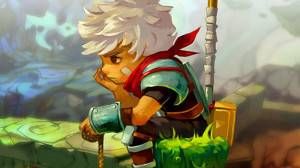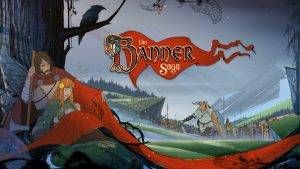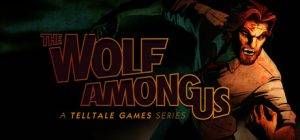
Great Books That Aren’t Books: Storytelling in Games
If there is more than one way to skin a cat – a bit of a strange expression, let’s not dwell on it – then there is also more than one way to tell a story. Some of my favourite narratives in the past few years have come from computer games. More than just repetitive mechanics, they can combine gameplay with engaging, often interactive, storytelling. I’ve suggested a few of my favourites below, but it’s a growing field with many writers taking advantage of advances in technology. Techniques employed can range from reactive narration to narratives shaped by readers’ choices. These innovative shifts can provide a new experience for seasoned readers, and a gateway for gamers looking for more stories.
 Bastion
Bastion
A few years back I stumbled upon Bastion in the app store. It tells the tale of the Kid, who wakes up to see the world falling down around him, literally. The story unfolds through reactive narration. Seemingly every action triggers a unique piece of commentary from the narrator (Logan Cunningham channelling Sam Elliot) as the Kid attempts to discover what has happened to his world. The narrative is expertly paced with slow reveals, dark revelations and reconfiguration of events, enhanced by the exquisitely realised world, engaging game mechanics and affecting artwork. The writers deftly balance lightness and humour with the elegiac tone. It is a beautifully told story about the end of the world and redemption.
 Banner Saga
Banner Saga
This might be a very specific piece of nostalgia, but did anyone play Viking Quest at school (circa 1990)? It’s a computer game where you lead a Viking raiding party, making decisions on men, provisions and routes. I used to love it! Banner Saga builds on this early exploration/management type game, but adds so much more. Stir in art influenced by Ralph Bakshi’s iconic style (check out his animated version of Lord of the Rings released in 1978) and combine it with the Icelandic Eddas and you get a refreshingly different fantasy setting that draws on Norse mythology and the Skaldic poetic tradition.
The world evoked is rich, full of historical and mythical detail and populated with a fantastical but emotionally realised cast of creatures and characters: ranging from the implacable stone Dredge to giant horned warriors, the Varl. Human stories are played out against the backdrop of a grand calamity and resulting political turmoil. What could be a stereotyped battle between good and evil, becomes a fight for survival – morally conflicted, ambivalent and engaging – guided by the decisions you make.
 Blackbar
Blackbar
Ever wondered what it might be like to live under a repressive regime? Blackbar gives the reader a glimpse. Its deceptively simple game mechanic works perfectly to hook you in. You are the recipient of increasingly censored correspondence and have to guess the blacked-out words to advance to the next letter. Playing through Blackbar felt like being a character in an Orwellian or Huxleyan dystopia: you start placid and content, but as you progress you begin to share the frustration and anxiety of the letters’ sender. The interactive element of the game fuses the role of reader and character, and you share the small triumph of each word revealed, working against the censors and forging a path of hope and rebellion.
 Telltale Games Series
Telltale Games Series
I won’t go too much into the Telltale series as they are getting ubiquitous in the app store. These games are almost interactive story books. They cover a wide range of popular properties, from DC comics stalwarts to The Walking Dead and Game of Thrones. (My favourite is the Fables graphic novel prequel The Wolf Among Us.) These games allow readers to inhabit characters and travel through environments plucked from the pages of their favourite books – it’s a fanboy’s paradise. But Telltale goes further, presenting the reader with morally ambiguous options in order to progress through the stories. This gives a real feeling of investment in events, as choices made affect future interactions and how the story plays out.
Games won’t replace books, but they provide a different way of telling stories which can place the reader right in the centre of the action, or provide unusual or dynamic twists in narrative. I’ve focussed on mobile apps, but it would be great to hear of examples from other formats. What stories have you been playing recently?





